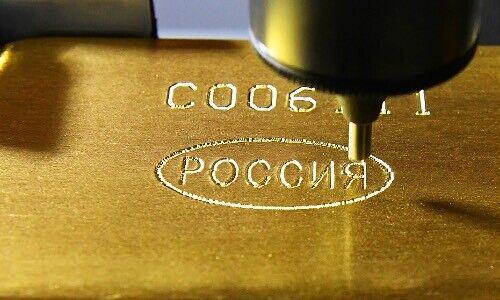Russia is one of the world's largest gold-producing countries after China and Australia. It has built up huge gold reserves but is now struggling to cash these in.
By the time of Russia's attack on Ukraine, the Russian central bank had increased its reserves to 2300 tons from 400 tons in 2007, to an amount worth about $140 billion, the «Frankfurter Allgemeine Zeitung» (in German, behind paywall) reports referencing data from the World Gold Council.
While the Russian central bank is still buying gold at home, it is struggling to sell its reserves abroad, the report says.
In an attempt to make the country less dependent on foreign currency reserves, Putin amassed a treasure almost five times as large as the one owned by Tsar Nicholas II, the report writes.
As sanctions bit following Russia's attack on Ukraine, some Russians rushed to buy gold bars and coins, fearing the rouble would crash.
On March 25, the Russian Central Bank said it would buy gold against roubles for the period from 28 March to 30 June at a fixed price of 5000 roubles per gram. Unsubstantiated speculation on social networks followed, saying that Russia was pegging its currency to gold, creating a gold standard like the United States once did in the Bretton Woods monetary system.
Although the central bank started buying gold at a fixed price in roubles, it did not offer gold at a fixed price in roubles, as would be required for a gold standard.
While the value of the rouble initially collapsed, it recovered afterward due to interventions. The stabilization prompted the central bank last week to say it would stop buying gold at a fixed price but would do so at a negotiated price.
Correction: First publication did not take into account the Russian central bank's decision on April 7 to start buying gold at a negotiated price.



































